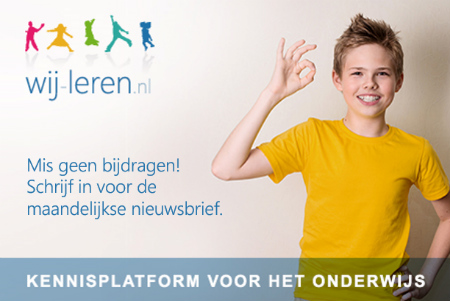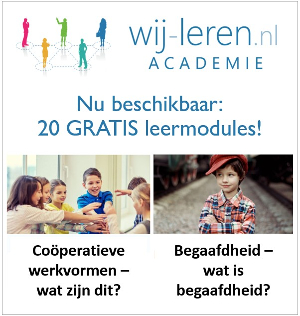Toetsing als kans voor leren - Intro
Geplaatst op 11 mei 2021
In een drietal artikelen geef ik een thematisch overzicht van het waarom, wat, wanneer en hoe van formatief evalueren.
"We're always looking for the next big thing, when we should be doing the last big thing properly, wich is formative assessment'' (Dylan Wiliam)
Leerlingen brengen tijdens hun middelbare schooltijd vele uren door met hun medeleerlingen en leraren. Zij ontwikkelen zich tijdens deze periode tot jongvolwassenen, die klaar zijn voor een volgende stap in hun (school)loopbaan. In het onderwijs speelt toetsing voor leraren en leerlingen sinds jaar en dag een belangrijke en sturende rol. Toetsing geeft leerlingen en ouders inzicht in de voortgang van het leerproces, maar is voor scholen ook een middel om de kwaliteit van het onderwijs te bewaken.
Negatieve toetservaringen kunnen echter leiden tot een gebrek aan motivatie, zelfvertrouwen en zin in leren (Natriello, 1987).
In 2018 constateerde de Onderwijsraad bovendien een disbalans in de huidige toets- en examenpraktijk tussen het toetsen van het leren en het toetsen voor het leren.
Om tot een evenwichtige balans te komen tussen onderwijzen, leren en toetsen, uiten scholen steeds meer hun behoefte aan kennis over de vormende en lerende functie van toetsing het formatief evalueren. Ook stellen zij de vraag hoe formatief evalueren zich verhoudt tot beslissingen over overgang en diplomering. De informatie en kennis over formatief evalueren is inmiddels echter zo overweldigend, dat het voor leraren lastig is de essentie te doorzien en (als team) de juiste eerste stap te zetten. Het doel van dit thematisch overzicht is (teams van) leraren handvatten te bieden bij de implementatie van formatief evalueren.
Voor dit doel is beschikbare en recente kennis gebundeld en focus aangebracht.
Belangrijkste conclusies zijn dat formatief evalueren
- over succeservaringen voor alle leerlingen gaat;
- het niet kan zonder effectieve didactiek en
- een visie op leren voorwaardelijk is.
De drie artikelen zijn te vinden via deze links:
Artikel 1 Wat is formatief evalueren en waarom is het belangrijk voor leren?
Artikel 2 Hoe organiseer je formatief evalueren en tot welke effecten leidt dat?
Artikel 3 Wat vraagt formatief evalueren van (teams van) leraren en de schoolleiding?
In Figuur 1 is de structuur van deze studie schematisch weergegeven.
Figuur 1. Schematisch overzicht van de overzichtsstudie
Referenties
- Abel, M., & Bäuml, K. T. (2020). Would you like to learn more? Retrieval practice plus feedback can increase motivation to keep on studying. Cognition, 201. https://doi.org/10.1016/j.cognition.2020.104316
- Ausubel, D. P. (1960). The use of advance organizers in the learning and retention of meaningful verbal material. Journal of Educational Psychology, 51, 267-272.
- Bailey, A. L., & Drummond, K. V. (2006). Who is at risk and why? Teachers' reasons for concern and their understanding and assessment of early literacy. Educational Assessment, 11(3-4), 149-178.
- Bandura, A. (1993). Perceived self-efficacy in cognitive development and functioning. Educational Psychologist, 28, 117-148.
- Bennett, T. (2017). Creating a Culture: How school leaders can optimise behaviour. Department of Education.
- Biggs, J. (1996). Enhancing teaching through constructive alignment. Higher Education, 32, 347-364.
- Bjork, R., & Bjork, E., (2019). Forgetting as the friend of learning: implications for teaching and self-regulated learning. Advances in Physiology Education, 43, 164-167.
- Bjork, R. A., Dunlosky, J., Kornell, N. (2013). Self-regulated learning: Beliefs, techniques, and illusions. Annual Review of Psychology, 64(1), 417-444.
- Black, P., & William, D. (1998). Assessment and classroom learning. Assessment in Education: Principle, Policy, & Practice, 5(1), 7-74.
- Bloom, B. S. (1969). Some theoretical issues relating to educational evaluation. In R. W. Tyler (Ed.), Educational evaluation: new roles, new means: the 63rd yearbook of the National Society for the Study of Education (part II) (Vol. 69(2), pp. 26-50). Chicago, IL: University of Chicago Press.
- Bowers, A. J. (2019). Report card grades and educational outcomes. In Guskey, T., Brookhart, S. (Eds.) What we know about grading: What works, what doesn't, and what's next, (p.32-56). Alexandria, VA: Association for Supervision and Curriculum Development.
- Brooks, C., Carroll, A., Gillies, R. M., Hattie, J. (2019). A matrix of feedback for learning. Australian Journal of Teacher Education, 44, 4, 14-32.
- Butler, R. (1988). Task-involving and ego-involving properties of evaluation: Effects of different feedback conditions on motivational perceptions, interest, and performance. Journal of Educational Psychology, 79(4), 474-482.
- Camerer, C., Loewenstein, G., & Weber, M. (1989). The curse of knowledge in economic settings: An experimental analysis. Journal of Political Economy, 97, 1232-1254.
- Carless, D, & Boud, D. (2018) The development of student feedback literacy: enabling uptake of feedback. Assessment & Evaluation in Higher Education, 43, 8, 1315-1325
- Christodoulou, D. (2016). Making good progress. The future of Assessment for Learning. Oxford: University Press.
- Coe, R., Rauch, C. J., Kime, S., & Singleton, D. (2020). Great teaching toolkit: Evidence review. Evidence Based
- Education in partnership with Cambridge Assessment International Education.
- Dirkx, K., Joosten-ten Brinke, D., Camp, G. (2018). Ontwerprichtlijnen voor formatief toetsen vanuit de geheugenpsychologie. Den Haag: NRO.
- Education Endowment Foundation (2018). Metacognition and self-regulated learning. Guidance report. London: Education Endowment Foundation.
- Educational Testing Service (2009). Research rationale for the Keeping Learning on Track program. Princeton: ETS.
- Fletcher-Wood, H. (2018). Responsive teaching. Cognitive science and formative assessment in practice. London: Routledge.
- Galenkamp, H., & Schut, J. (2018). Handboek professionele schoolcultuur. Focus op koers en gedrag. Huizen: Uitgeverij Pica.
- Groot, A. D. de (1966). Vijven en zessen. Cijfers en beslissingen: het selectieproces in ons onderwijs. Groningen: Wolters Noordhoff.
- Gulikers, J., & Baartman, L. (2017). Doelgericht professionaliseren: formatieve toetspraktijken met effect! Wat DOET de docent in de klas? Den Haag: NRO.
- Guskey, T. R. (2005). Formative classroom assessment and Benjamin S. Bloom: Theory, research, and implications. Paper presented at the Annual Meeting of the American Educational Research Association, Montreal, Canada.
- Hattie, J., & Timperley, H. (2007). The power of feedback. Review of Educational Research, 77, 81-112.
- Heitink, M., van der Kleij, F., Schildkamp, K., Kippers, W., & Veldkamp, B. (2020). Formative assessment: A systematic review of critical teacher prerequisites for classroom practice. International Journal of Educational Research, 103. https://doi.org/10.1016/j.ijer.2020.101602
- Jong, A., de, Knijff, R., Lockhorst, D., Bulder, E., Klein, T., & van Tartwijk, J. (2020). Wat is de kracht van leerKRACHT? Oplegger bij 2e infographic van effectonderzoek. Utrecht: Universiteit Utrecht/Oberon.
- Kirschner, P. A., Claessens, L., & Raaijmakers, S. (2018). Op de schouders van reuzen. Inspirerende inzichten uit de cognitieve psychologie voor leraren. Meppel: Ten Brink Uitgevers.
- Kirschner, P. A., & Clark, R. E. (2006). Why minimal guidance during instruction does not work: An analysis of the failure of constructivist, discovery, problem-based, experiential, and inquiry-based teaching. Educational Psychologist, 41(2), 75 86..
- Kwangsu, C., & MacArthur, C. (2010). Student revision with peer and expert reviewing. Learning and Instruction, 20, 4, 328-338.
- Laveault, D., & Allal, L. (2016). Assessment for learning: meeting the challenge of implementation. Dordrecht: Springer.
- Leahy, S., Lyon, C., Thompson, M., & Wiliam, D. (2005). Classroom assessment that keeps learning on track minute-by-minute, day-by-day. Educational Leadership, 63(3), 19-24.
- Leeming, F. C. (2002). The exam-a-day procedure improves performance in psychology classes. Teaching of Psychology, 29(3), 210 212.
- Natriello, G. (1987). The impact of evaluation processes on students. Educational Psychologist, 22(2), 155 175. Onderwijsraad (2018). Toets wijzer. Den Haag: Onderwijsraad.
- Panadero, E., Andrade, H., Brookhart, S. (2018). Fusing self-regulated learning and formative assessment: a roadmap of where we are, how we got here, and where we are going. The Australian Educational Researcher, 45, 13-31.
- Popham, W. J. (2008). Transformative assessment. Alexandria, VA: ASCD.
- Robinson, V. M. J., Lloyd, C. & Rowe, K. (2008). The impact of leadership on student outcomes. An analysis of the differential effects of leadership types. Educational Administration Quarterly, 44(5), 635-674.
- Rosenthal, R. & Jacobson, L. (1968). Pygmalion in the classroom. New York: Holt, Rinehart & Winston.
- Ruiz-Primo, M. A. (2011). Informal formative assessment: The role of instructional dialogues in assessing Studies in Educational Evaluation, 37, 15-24.
- Sadler, R. D. (1989). Formative assessment and the design of instructional systems. Instructional Science, 18, 119-144.
- Schildkamp, K., Heitink, M., van der Kleij, F., Hoogland, I., Dijkstra, A., Kippers, W., & Veldkamp, B. (2014). Voorwaarden voor effectieve formatieve toetsing. Een praktische review. Den Haag: NRO.
- Seidel, T., Rimmele, R., & Prenzel, M. (2005). Clarity and coherence of lesson goals as a scaffold for student learning. Learning and Instruction, 15, 539-556.
- Sherrington, T., & Caviglioli, O. (2020). Teaching W -step guides to instructional coaching. Melton, Woodbridge: John Catt Educational Ltd.
- Shute, V. J. (2008). Focus on formative feedback. Review of Educational Research, 78(1), 153-189.
- Sleenhof, J. P. W., Koopman, M., Thurlings, M. C. G., & Beijaard, D. (2019). beliefs and experiences about allocating students. Teaching and Teacher Education, 80, 94-105.
- Sluijsmans, D. M. A., Joosten-ten Brinke, D., & Van der Vleuten, C. P. M. (2013). Toetsen met leerwaarde. Een reviewstudie naar effectieve kenmerken van formatief toetsen. Den Haag: NWO.
- Sluijsmans, D. M. A., & Kneyber, R. (2016). Toetsrevolutie. Naar een feedbackcultuur in het voortgezet onderwijs. Culemborg: Uitgeverij Phronese.
- Soderstrom, N. C., & Bjork, R. A. (2015). Learning versus performance: An integrative review. Perspectives on Psychological Science, 10(2) 176-199.
- Surma, T., Vanhoyweghen, K., Sluijsmans, D. M. A., Camp, G., Muijs, D., & Kirschner, P. (2019). Wijze lessen. Twaalf didactische bouwstenen voor effectieve didactiek. Meppel: Ten Brink Uitgevers.
- Thum, Y. M., Tarasawa, B., Hegedus, A., Yun, X., & Bowe, B. (2015). Keeping Learning on Track. A case-study of formative assessment practice and its impact on learning in meridian school district. Portland, OR: Northwest Evaluation Association.
- Vleuten, C. P. M van der., Schuwirth, L., Driessen, E., Govaerts, M. J. B., & Heeneman, S. (2015). Twelve tips for programmatic assessment. Medical Teacher, 37, 641-664.
- Weinstein, Y., & Sumeracki, M. (2019). Understanding how we learn. A visual guide. Milton Park, Abingdon, Oxon: Routledge.
- Wiggins, G., & McTighe, J. (2006). Understanding by design (2nd ed.). Upper Saddle River, NJ: Pearson Prentice Hall.
- Wiliam, D. (2006). Formative assessment: Getting the focus right. Educational Assessment, 11(3), 283-289.
- Wiliam, D. (2011). Embedded Formative Assessment. Bloomington: Solution Tree Press.
- Wiliam, D. (2013). Principled curriculum design. London: SSAT Limited.
- Wiliam, D. (2016). Leadership for teacher learning. Bristol: Learning Science Ltd.
- Wiliam, D., Lee, C., Harrison, C., & Black, P. J. (2004). Teachers developing assessment for learning: Impact on student achievement. Assessment in Education: Principles, Policy & Practice, 11(1), 49 65.
- Willingham, W. W., Pollack, J. M., & Lewis, C. (2002). Grades and test scores: Accounting for observed differences. Journal of Educational Measurement, 39(1), 1 37.
- Winstone, N. E., & Boud, D. (2020). The need to disentangle assessment and feedback in higher education. Studies in Higher Education. https://doi.org/10.1080/03075079.2020.1779687
- Wylie, C. E., & Lyon, C. J. (2015) The fidelity of formative assessment implementation: issues of breadth and quality. Assessment in Education: Principles, Policy & Practice, 22(1), 140-160.
Heb je vragen over dit thema? Stel ze in de onderwijs community binnen de Wij-leren.nl Academie!
Gerelateerd
Wij-leren.nl Academie

Medilex Onderwijs

Wij-leren.online Academie











